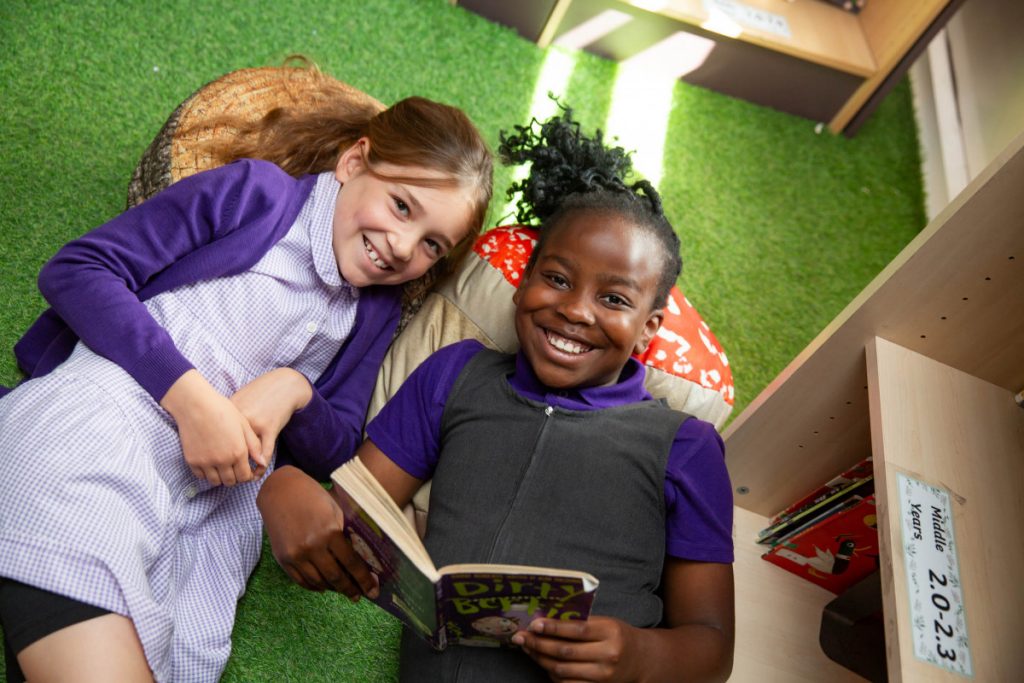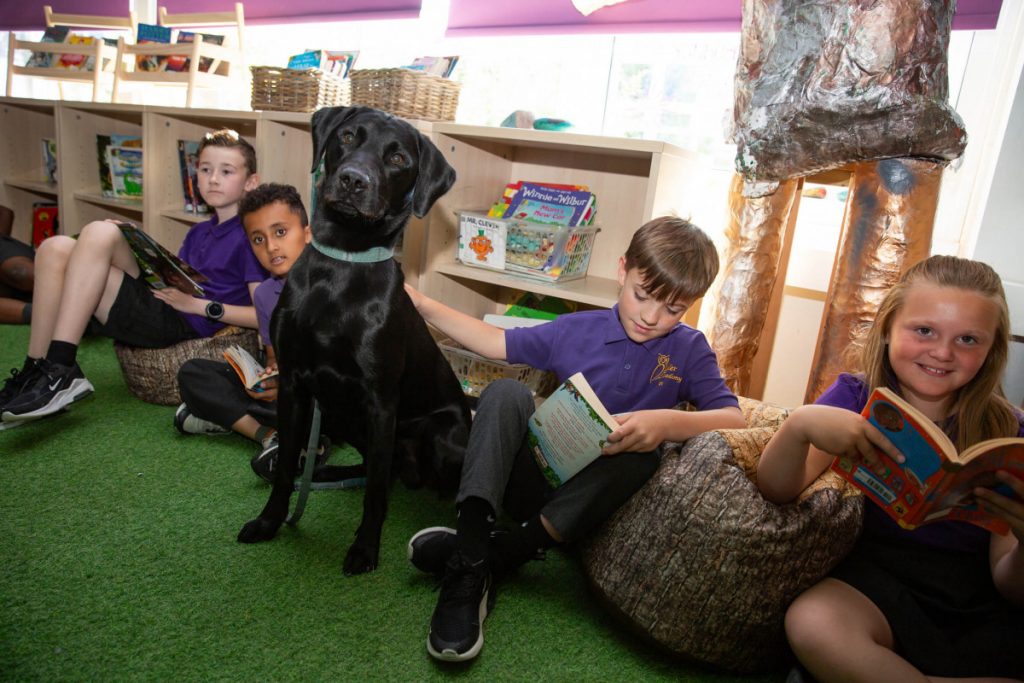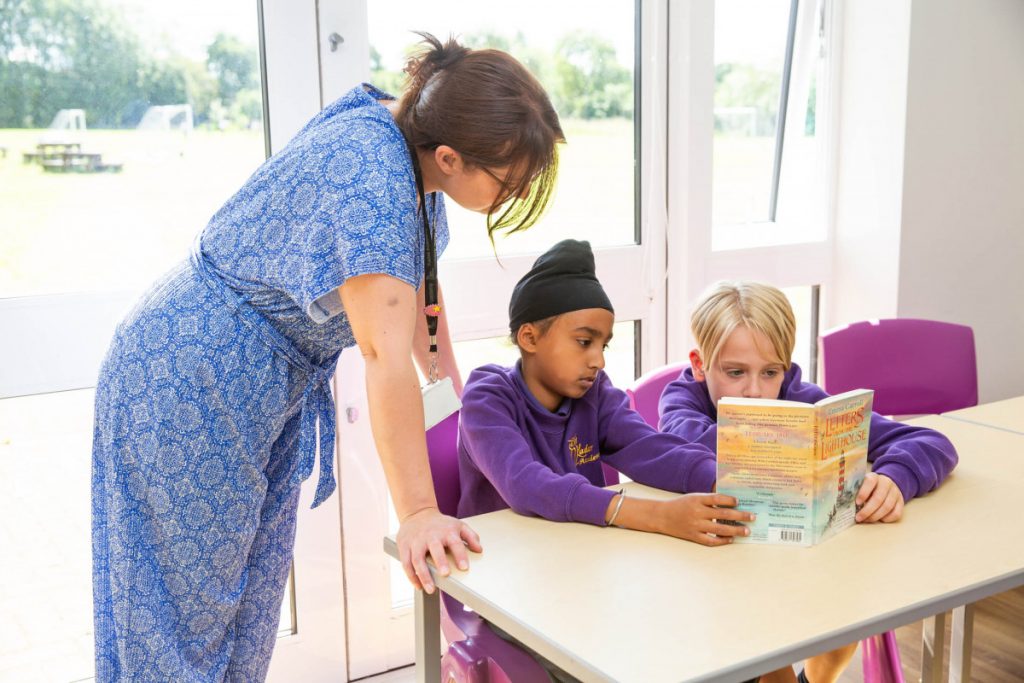Curriculum Lead : Mrs E. Burton
Vision
Kader Academy aims to develop little people who feel safe and happy. We want them to develop a strong sense of pride, not only in themselves, but of their local area and its heritage. We value the importance of strong relationships with our families and our sense of community is at the heart of all we do. We know that our diversity is our strength and we will strive to ensure that the children’s compassion and kindness makes the world a better place. We will inspire curiosity through engaging experiences that promote a profound love of learning. We want them to know that their learning knows no bounds and with self-belief and determination, they can achieve the impossible
Our English vision is to ensure that all children within our care, regardless of their starting point or their home language, develop a love of the English language, with a proficient command over its use. We want our children to see themselves as both competent readers, writers and speakers who aspire to accomplish amazing things.

Intent: Why our English curriculum looks like this
To deliver a clear, sequenced progression in both Reading and Writing, with previously-taught content being revisited and built-upon each year within DART time and across lessons;
We aim to empower of learners with the transcriptional and compositional skills to write for a variety of purposes and audiences.
We aim to introduce our children to a vast wealth of reading material to instill within them a love of reading.
We want for our children to, not only be bitten by the reading bug, and be competent in the use of their skills, but to use the characters within their books to help guide their moral compass. We want them to understand complex values such as friendship, equality, diversity and resilience, thus in turn preparing them for life in secondary school and in the modern world beyond.
Implementation: How we will achieve this
Regular staff CPD to upskill all teaching and learning staff;
Regular moderation exercises in year groups teams, across year groups, across phases and across schools to secure our writing judgements;
Use of Read Write Inc (RWI) in EY and KS1 to rigorously teach decoding;
Use of WCR strategies (including use of VIPERS) across year groups to develop comprehension skills;
Use of the sequenced Book Spine, outlining all key texts to be used within English sessions, providing a breadth and depth of reading material (this will be added to annually);
Use of planning tools based on MSTA frameworks to make formative and summative judgements and plan for future teaching and intervention;
Explicit teaching of vocabulary both within topic sessions and English sessions;
Regular revisiting of vocabulary and SPAG terminology within DART sessions;
Use of the Power of Reading and RSC strategies (primarily talking before writing) to guide reading and writing forward;
Swift intervention for those struggling readers using RWI strategies and intervention such as 1:1 reading, conferencing, small focused group work, Toe by Toe and Reading Plus;
Provide support for parents with regards to their child’s reading including use of workshops, strategy-sharing and regular contact.


Impact: The approach at Kader will ensure that:
We strive to ensure that our children’s attainment in English is in line with or exceeding their potential when we consider their varied starting point. We measure this carefully using a range of materials, but always considering Age Related Expectations. We intend that the impact is that children will be academically and mentally prepared for life in high school and in Modern Britain and the world.
Through our English curriculum and the wide-ranging texts we offer, we will see our pupils grow into fully rounded characters with a clear understanding of complex values like equality, friendship, trust and many others. Only by really learning what these mean will our learners be able to develop a character that prepares them for living in the community, demonstrating tolerance and equality. We measure this not just by the work our children produce, but in the behaviours we see each and every day in all learners on the playground, in corridors, and in the many roles we give them. The impact of this intention is seen in the daily interaction of all members of our community, including staff and children.
By working with texts that deal with a variety of social and emotional issues, with protagonists both male and female; from rich to poor; from Asian to American descent; from the able-bodied to the disabled, the pupils in our care will resonate with the characters they meet, will empathise and will develop compassion. The children will ‘see themselves’ within these characters and feel empowered to achieve their own ‘happy ending’.
